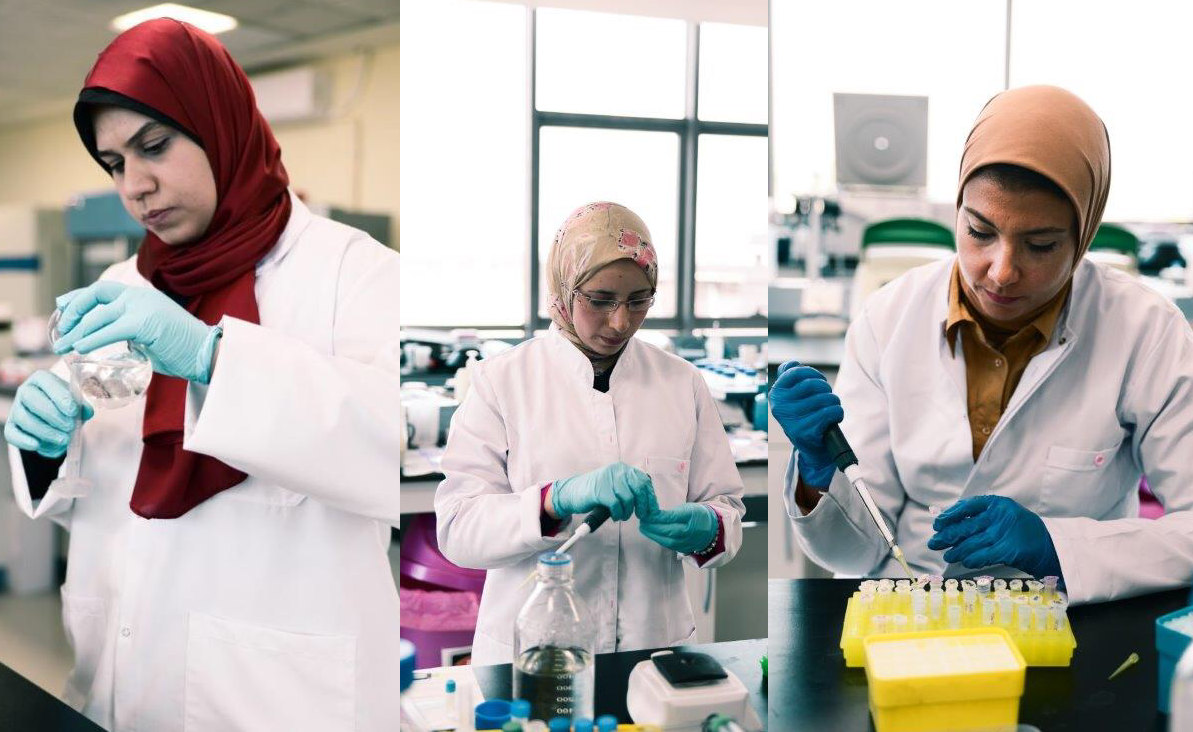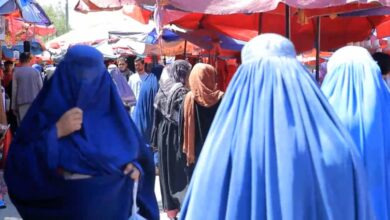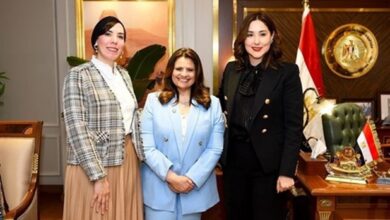
Egyptian women are excelling in numerous fields. Scientists Marwa Balaha, Nuha Mustafa and Amira Al-Yathebi are just another proof of that.
The three Egyptians earned awards by L’Oréal-UNESCO For Women in Science, for their achievements in the field, joining other notable women from all around the world.
Balaha is an Egyptian pharmacist and chemist, who was able to design and build new compound cells to act as poison to carcenogenic cells. The cells operate as an antidote to lung cancer.
Those cells have been tested and compared to already existing cancer treatments.
She also created a specimen linking the shape of the cells and their chemical formula to the shape of lung cancer cells. Her research will save time and money, when designing cancer treatments.
Currently, Balaha is involved in a project that aims to create medicine to fight cancer, in cooperation with an Italian pharmaceutical company.
As for doctor Nuha Mustafa, she is a researcher in the field of Analytical Chemistry, and a teaching assistant in Assiut Pharmaceutical School. When she realized the importance of analytical chemistry, she devoted her time to creating new methodologies for analyzing different medications, and determining their components.
Mustafa aims to create innovative, extremely accurate and cheap methodologies to separate medicine components, as well as test their reactions to oxidization.
Finally, Dr. Amira Al-Yazbi is a researcher in the field of analytical pharmaceutical chemistry, and an assistant professor in the school of pharmacy at Alexandria University.
After obtaining her masters in 2007, she was offered a place to complete her doctorate in Alberta University, Canada. In 2013, she refused a teaching position at the university, preferring to return to Egypt.
In 2016, Al-Yazbi obtained the position of visiting professor in Alberta University, where she spent a year researching affordable methods to accurately detect DNA destruction. DNA destruction can lead to several diseases including cancer, and therefore, early detection of such abnormalities can help prevent cancer early on.
At the moment, the methods of detecting DNA abnormalities are extremely expensive, to allow for routine checkups.
The result is that several commonly-used items such as medicine, cosmetics and power foods do not undergo the necessary tests to determine their effect on DNA.
The L’Oréal-UNESCO For Women in Science Egypt Fellowships program aims to promote Egyptian young women’s participation in varied scientific fields, through identifying and honoring talented young female scientists in both life sciences and physical sciences.
Each year, the program selects three young candidates, who represent the pinnacle of female achievement in scientific fields.




